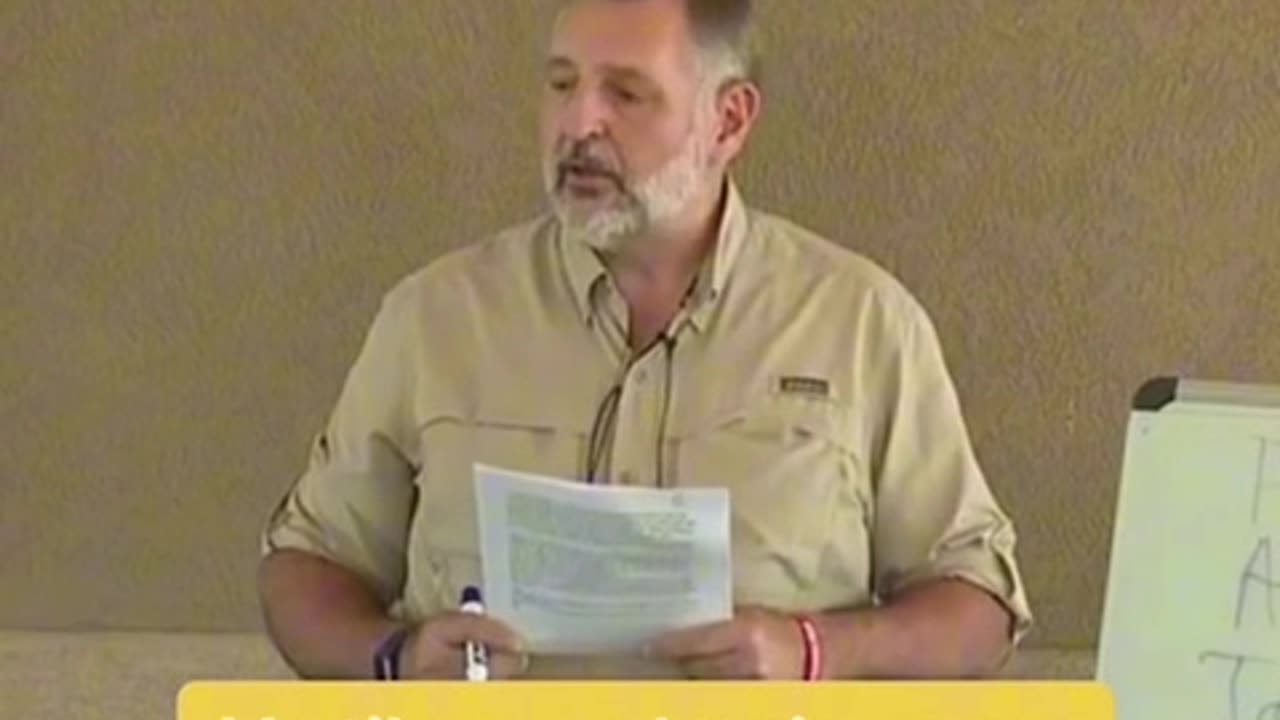Premium Only Content

The Great Mortgage Illusion: How Your Signature Paid Off Your Loan
The financial system we operate under is a labyrinth of complexities, hidden mechanisms, and obscured truths. Among its most intricate puzzles is the mortgage system—a cornerstone of modern financial life. But what if everything you’ve been told about your mortgage is a carefully constructed illusion? What if, in reality, the moment you signed your mortgage agreement, the loan was already paid off—not by the bank, but by you?
This theory isn’t just a provocative idea; it opens the door to understanding the shadowy mechanisms of the global financial system, the role of your signature as a financial instrument, and the deliberate misinformation designed to keep individuals in perpetual debt.
1. The Power of Your Signature
When you apply for a mortgage, you’re led to believe that the bank is lending you its money. In reality, the process is far more nuanced—and far less transparent.
• Your Signature as a Financial Instrument: When you sign a mortgage agreement, that document becomes a promissory note—a negotiable financial instrument with intrinsic value. Banks use this note as an asset to create new credit.
• How the Money Is Created: Once the bank has your signed agreement, it doesn’t draw from pre-existing funds to lend you the money. Instead, it creates new money out of thin air through a process called fractional reserve banking. Essentially, your promise to pay (your signature) becomes the collateral for generating the funds.
2. The Hidden Role of Promissory Notes
Promissory notes are not merely symbolic; they are the bedrock of the financial transaction.
• Asset Transformation: Banks treat your signed mortgage as an asset. This asset is then recorded on their balance sheet and often sold to third-party investors, such as those involved in mortgage-backed securities.
• Immediate Value Creation: The bank essentially “monetizes” your note, receiving its full value immediately while you are led to believe you must repay the loan over decades.
3. You Are the Creditor, Not the Debtor
The narrative of debtor versus creditor is central to the control mechanisms of modern finance. However, this narrative is deliberately inverted to maintain power dynamics.
• Why You Are the Creditor: By signing the mortgage, you initiate the creation of money. Without your agreement and signature, the bank cannot generate the credit. This makes you the true source of the funds, effectively paying off the loan at its inception.
• Why You’re Treated as a Debtor: Despite your role as the true creditor, the system reclassifies you as a debtor, binding you to years of repayments. This ensures you remain financially subservient and that the bank reaps decades of interest profits from money it didn’t actually have to begin with.
4. The Fraudulent System: Unveiling the Illusion
This entire process operates on a foundation of legal and financial sleight of hand. Here’s how it works:
• Double Dipping: Once the promissory note is monetized, the bank has already been “paid.” However, it still demands monthly repayments from you, effectively earning twice on the same transaction.
• Mortgage-Backed Securities: Your mortgage is often bundled with others and sold as securities to investors. This generates additional profit streams for the bank while leaving you tethered to the repayment schedule.
• Lack of Full Disclosure: The most insidious aspect of this system is the lack of transparency. Most borrowers have no idea that their signature created the funds, nor are they informed that their mortgage was effectively paid off the moment they signed the agreement.
5. Historical and Legal Context
This system of financial alchemy didn’t emerge overnight; it’s the result of decades of legal frameworks and economic shifts.
• The Federal Reserve and Fractional Reserve Banking: The establishment of the Federal Reserve in 1913 codified the creation of money as debt. Fractional reserve banking allows banks to create money based on a fraction of their reserves, turning promissory notes into a limitless source of credit.
• Uniform Commercial Code (UCC): The UCC governs commercial transactions in the United States, including the use of promissory notes. Under these laws, your mortgage agreement becomes a negotiable instrument, treated as cash-equivalent by the banks.
6. The Implications for Homeowners
Understanding this hidden framework has profound implications for homeowners:
• Debt as an Illusion: If your mortgage was effectively paid off at the time of signing, the notion that you “owe” the bank is a legal fiction designed to keep you in financial bondage.
• Empowerment Through Knowledge: Recognizing your role as the true creditor flips the narrative. You are not a passive recipient of a loan but an active participant whose financial value fuels the system.
7. Breaking Free: What Can Be Done?
The first step to dismantling this system is awareness. Once individuals understand the mechanics of their mortgages, they can begin to challenge the status quo.
• Demand Transparency: Homeowners can demand full disclosure of how their mortgage was processed, including how the promissory note was used.
• Legal Challenges: Some individuals have pursued legal avenues to expose the fraud inherent in the mortgage system. While challenging, these cases can set important precedents.
• Alternative Financial Systems: Exploring alternatives to traditional banking, such as decentralized finance (DeFi) and community lending, can help individuals reclaim control over their financial lives.
8. The Larger Picture: A System of Control
At its core, the mortgage system exemplifies the broader mechanisms of financial control. By keeping individuals in debt, the system ensures a compliant and dependent population.
• Psychological Impact: The burden of debt creates stress and limits individual freedom, making it harder for people to challenge the system or pursue their passions.
• Economic Inequality: The profits generated from this system disproportionately benefit financial institutions and the wealthy elite, perpetuating cycles of inequality.
Conclusion: The Power Lies Within You
The idea that your mortgage was paid off the moment you signed it may seem radical, but it’s a reflection of the hidden realities of our financial system. By understanding the power of your signature, the role of promissory notes, and the mechanisms of fractional reserve banking, you can begin to reclaim your financial sovereignty.
The question is no longer whether this system is fair or just—it clearly is not. The real question is what each of us will do with this knowledge. Will we continue to play by the rules of a rigged game, or will we demand a new system that honors transparency, fairness, and individual empowerment? The choice, as always, is yours.
-
 5:16
5:16
FragmentsOfTruth
9 hours ago🚫 The K-Truck Ban: How 12 States Just Outlawed Your Ride Overnight
72 -
 LIVE
LIVE
ttvglamourx
6 hours ago $0.81 earnedPLAYING WITH VIEWERS !DISCORD
91 watching -
 LIVE
LIVE
TheManaLord Plays
8 hours agoMANA SUMMIT - DAY 2 ($10,200+) | BANNED PLAYER SMASH MELEE INVITATIONAL
196 watching -
 LIVE
LIVE
Jorba4
3 hours ago🔴Live-Jorba4- The Finals
85 watching -
 LIVE
LIVE
BBQPenguin_
3 hours agoSOLO Extraction. Looting & PVP
35 watching -
 1:57:14
1:57:14
vivafrei
20 hours agoEp. 280: RFK Jr. Senate Hearing! Activist Fed Judges! Epstein Victims DEBACLE! & MORE! Viva & Barnes
78.1K86 -
 LIVE
LIVE
GritsGG
3 hours agoTop 250 Ranked Grind! Dubulars!🫡
66 watching -
 5:31
5:31
WhaddoYouMeme
1 day ago $3.52 earned$8,000/hr Dating Coach Loses Everything (Sadia Kahn)
22.4K10 -

Ouhel
6 hours agoSunday | CoD 4 | CAMPAIGN PLAYTHROUGH | Nostalgia Kick
14.4K3 -
 13:14
13:14
DEADBUGsays
1 day agoThe Murder of Veronica Kaye | Cold#11
18.3K4